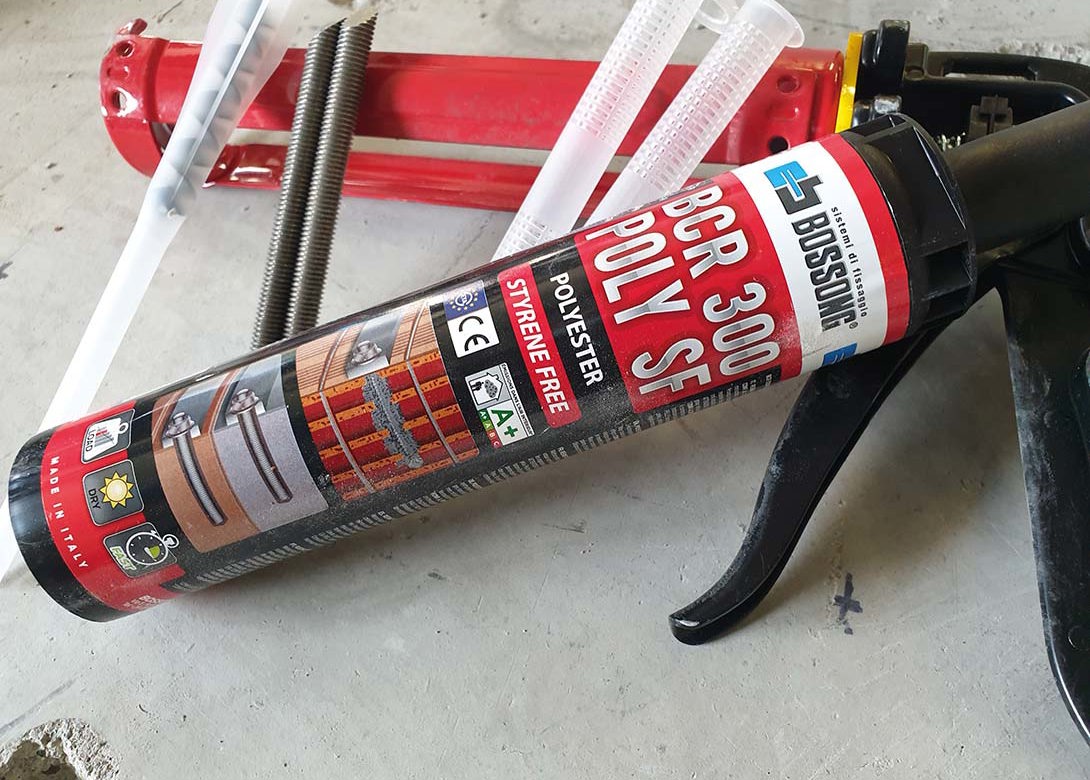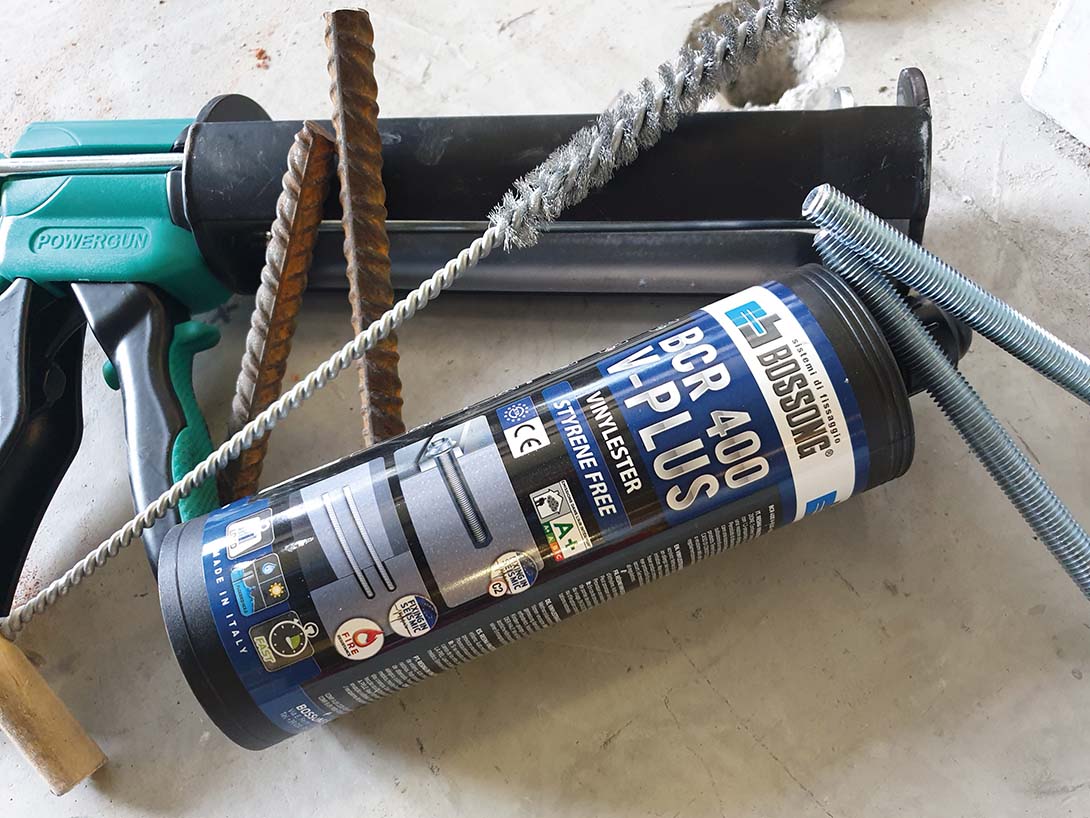
Thanks to continuous investment and the experience gained in the field of fastening systems, Bossong is an expert in chemical anchors and outlines here when a chemical anchor should be chosen, instead of a mechanical one.
With its complete range of high-quality chemical anchors, manufactured at its main plant in Bergamo, Italy, Bossong SpA points out that the use of chemical anchors is continuously growing within the market thanks to their flexibility and the possibility of installation in every type of base material – hollow, aerated and solid. For some base materials such as hollow and solid masonry, AAC, and lightweight concrete, the chemical anchor is the best solution, because it doesn’t create any tension on the base material during installation.
 In terms of flexibility, a chemical anchor enables the possibility to anchor the rebar, for example with the post-installed rebar connection, and also to design fixings with variable setting depth. The possibility to increase the setting depth up to 20 times the diameter of the threaded rod gives the designer the option to have a higher resistance load with respect to a mechanical anchor.
In terms of flexibility, a chemical anchor enables the possibility to anchor the rebar, for example with the post-installed rebar connection, and also to design fixings with variable setting depth. The possibility to increase the setting depth up to 20 times the diameter of the threaded rod gives the designer the option to have a higher resistance load with respect to a mechanical anchor.
Chemical anchors also enable the restoring and reconstitution of the support continuity after hole drilling, as there’s no risk of water infiltration if there is a resin as interface between concrete and steel. Chemical anchors offer protection of the rod against corrosion once installed into concrete thanks to the resin. There is also no stress shock for concrete or impact vibration pressure in the base material due to mechanical anchor expansion. Resin anchors bond by adhesion and not by expansion like a mechanical anchor.
Flexibility is also increased when using chemical anchors due to the wide range of rod diameter under approval from 8mm to 32mm. With mechanical anchors, M27 is generally the maximum, with fewer lengths per size. There is also reduced installation limits with chemical anchors due to no mechanical stress during installation.
Stock is also a big benefit with chemical anchors. With mechanical anchors or concrete screws, dealers need to stock different diameters and sizes, which means many boxes and space in the warehouse. In comparison, three carton boxes of chemical anchors – polyester, vinylester and pure epoxy – can be used for many diameters and lengths of rods or rebar for all kind of supports such as masonry, concrete, stones, aerated material, wood, etc.
Bossong’s bonded anchor product range is completely ETA certified, with every type of bonded anchor solution – polyester for masonry and non-cracked concrete, epoxy acrylate for rods and rebar fixing, vinylester resins for cracked concrete and structural fixing in high seismicity areas for rods and rebar, as well as pure epoxy for high performances, cracked concrete and seismic applications, of which different versions for winter and tropical situations are available such as underwater and fire resistant solutions for contractors, dealers and project engineers.

Having spent a decade in the fastener industry experiencing every facet – from steel mills, fastener manufacturers, wholesalers, distributors, as well as machinery builders and plating + coating companies, Claire has developed an in-depth knowledge of all things fasteners.
Alongside visiting numerous companies, exhibitions and conferences around the world, Claire has also interviewed high profile figures – focusing on key topics impacting the sector and making sure readers stay up to date with the latest developments within the industry.






